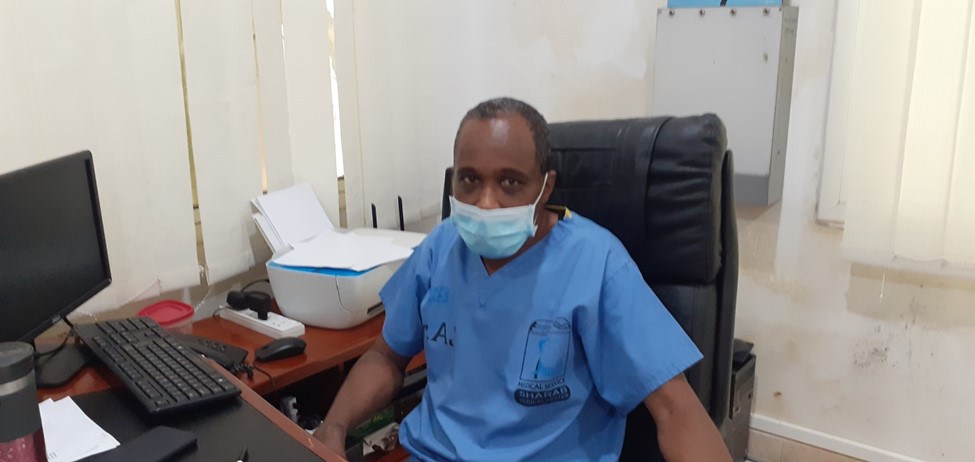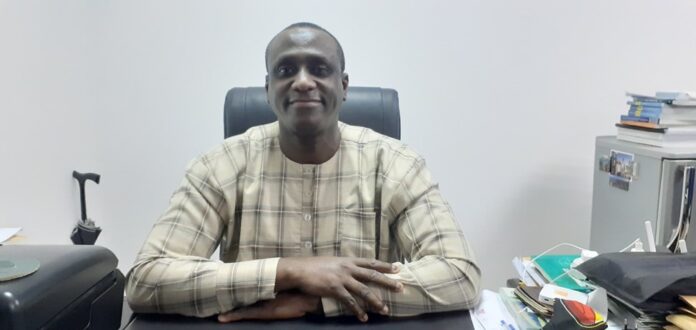By Momodou Jarju
In The Gambia, going for check-ups is like a taboo to many people. Many Gambians only visit hospitals when they feel sick or are sick. To see Gambians volunteer for testing or checkups leaves much to be desired. Health experts speak against this habit. They say people should have their body checked and adults especially are urged to at least once a year have a general checkup.
Eye specialist Dr Aba Hydara says certain diseases are insidious. This means they develop slowly without showing any symptoms and by the time they start showing symptoms, it may be too late. Hydara is the head of the Sheikh Zayed Eye Care Hospital in Kanifing. For him, people need to have the awareness to have their eyes checked.
“People who have diabetes need to have their eyes checked immediately they are diagnosed, but also regularly to prevent blindness,” he says, adding that people above 40 years too, need to have their eyes checked to avoid having glaucoma because they can go blind without knowing they have glaucoma.
When asked how often Gambians visit him for checkups, Dr. Abubacarr Jah, a consultant urologic surgeon, says “very rarely”.
Dr Jah has been working in the Gambia’s health sector since 2002. He is the medical director of Sharab Clinic and also lectures at the University of The Gambia and American International University. Jah is a specialist in the male reproductive organs- a gynecologist-like for the males.

But there is some hope. At Dr Jah’s clinic, people sometimes visit voluntarily to do checkups. It is that way Jah believes many diseases can only be detected. The renowned doctor shares his experience.
“When I was working in England, I was doing at least one prostate operation for cure of prostate cancer at least one every week in the hospital that I was in and all the other hospitals were doing as many,” he says.
When he came back from his training in the UK in 2009, over 10 years now, Dr Jah had done only two operations for cure of prostate cancer. Out of over thousand prostate cancer cases he had seen, only the two came early enough to have operations. The others came late when it was no longer possible to operate on them and no longer possible to cure prostate cancer. They resorted to controlling the cancer instead.
Affordability Issue
There is no gainsaying that many Gambians grapple with poverty. People strive to make ends meet daily. Thus, they barely think of saving some money for health purposes.
But Dr Hydara begs to differ that affordability is the case for many people. It’s an issue of priority according to him. Most people use smartphones in the country and he says they use those phones to surf the internet and chart on WhatsApp, which incur a lot of resources.
“Gambians spend more time on trivialities than planning for their health,” he says, adding that they need to learn to put some little funds aside so that they can take care of their health if an emergency happens.
“If it is routine, probably you may not spend even more than D500. But for certain diseases, like for monitoring purposes, you probably will need between D3000 to D5, 000 and some of those tests could just be a one-off test, and you get a high reproducible result that you can take to other countries.”
Generally, Dr Hydara says health cannot be bought.
“If let’s say somebody has a kidney disease, if you tell him you need to pay D1 million dalasi we replace your kidney, they will bring D1 million. But you cannot replace a kidney with D1 million. You cannot quantify the value of health. You cannot, a billion cannot buy health.”




















